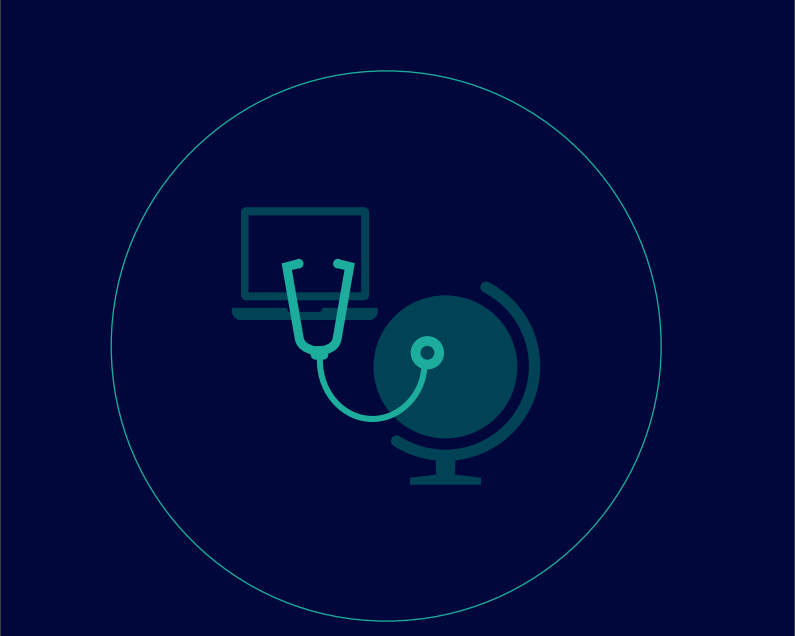
Data is proliferating, but data sharing continues to be a challenge, according results of the first edition of the Future Health Index (FHI), an extensive international study commissioned by Philips which explores how countries around the world are positioned to meet long-term global health challenges through integration and connected care technologies.
The report finds that despite progress towards universal medical records in some markets, the vast majority of patients (74%) report having to repeat the same information to multiple healthcare professionals, and most (60%) have also experienced repeatedly taking the same tests.
Meanwhile, even though more than half (57%) of patients own or use a connected care device to monitor various health indicators, only one third of these patients (33%) have ever shared this information with their doctor.
Future Health Index Overview Reveals Varying Level of Digital Health Readiness
Examining the perceptions, behaviors and attitudes of patients and healthcare professionals, the Future Health Index focuses on three important factors necessary to move toward a more integrated system of healthcare: access to healthcare; integration of the current health system; and adoption of connected health technology devices and systems.
While the data illustrates the growing opportunity for digital technology to drive healthcare transformation, the Future Health Index also reveals varying levels of readiness across markets and unveils opportunities for improvement to encourage broader user adoption globally.
Three-quarters (76%) of healthcare professionals in developed markets agree their patients have access to the treatments needed for current and future medical conditions, versus just over half (58%) of those in emerging markets. However, emerging markets such as South Africa and the UAE appear to be leading the way in terms of connected device adoption, and more healthcare professionals in emerging economies expect connected devices to be used to manage health in the future.
Assigning each country surveyed an average score out of 100, the FHI report shows the perceived state of readiness of each market to benefit from integration across healthcare systems. The United Arab Emirates achieved the highest score – 65.3 – among participating nations, with The Netherlands and China also coming in high, with scores of 58.9 and 58.1, while Germany, Brazil and Japan received the lowest scores in terms of readiness, at 54.5, 50.6 and 49.0, respectively.
Key Findings
In addition to data sharing challenges, other key findings from the FHI study showed:
Integration and data sharing are worth pursuing
– Sizeable majorities of both patients and healthcare professionals (69% and 85%, respectively) believe integrated health systems and connected technologies can improve the quality of care for patients, and most doctors (88%) agree that integration can have a direct positive impact on population health management.
Bureaucracy is seen as a major stumbling block
– Half (54%) of healthcare professionals and 43% of patients indicate health system bureaucracy is a major barrier to further coordinate data information sharing and integration of healthcare systems in their countries.
Cost, training and data security concerns are standing in the way
– Half of healthcare professionals and patients (52% and 51%, respectively) believe connected care devices would increase the cost of healthcare overall, with worries about resources needed for associated needs, such as training and data security contributing to overall concerns.
Patients and doctors are divided in perceptions of patients’ ability to monitor their own health
– A clear majority of patients surveyed (69%) feel they have the knowledge to manage their own health effectively. However, less than half of healthcare professionals (40%) agree.
– Perception gaps also exist in terms of who is responsible for preventing poor health. As patients age, they are more likely to believe they are the guardians of their own health – 79% of those 55 years or older agree they are fully responsible for preventing poor health compared to younger patients (66% of those aged 18-34 globally).
Technology is a generational issue, for both healthcare professionals and patients
– Across the countries surveyed less experienced healthcare professionals and younger patients are more likely to see, use and share information from connected technology than their older peers. This indicates that adoption will rise in the years ahead as a ‘digitally native’ generation comes of age.
– Over half (57%) of patients aged 18-34 report owning or using at least one health monitoring device, and one-quarter (25%) feel they are knowledgeable about connected care technology, versus 14% of those aged 55 and older.
Survey Background/Methodology
The FHI focuses on the three factors necessary to move toward more future-ready, financially sustainable and patient-centered healthcare systems: access to healthcare; integration of the health system; and adoption of connected care technology.
Based on a survey of 25,355 patients and 2,659 healthcare professionals across the 13 countries supplemented by in-depth interviews, it highlights a growing opportunity for digital technology to drive healthcare transformation, while also revealing how different countries compare and identifying possible areas for improvement.
